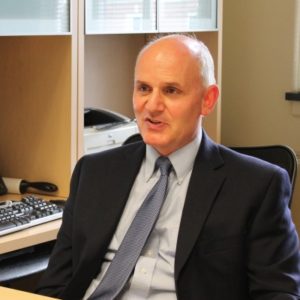Study: A brief sleep intervention can bring measurable and sustained benefits to children with ADHD
 Sleep problems are common in children with ADHD, are more persistent than in the general population, and often exacerbate difficulties associated with ADHD. For example, poor sleep can enhance difficulties with attention and concentration that most youth with ADHD experience.
Sleep problems are common in children with ADHD, are more persistent than in the general population, and often exacerbate difficulties associated with ADHD. For example, poor sleep can enhance difficulties with attention and concentration that most youth with ADHD experience.
Research has shown that brief sleep interventions can improve sleep in youth without ADHD who experience sleep difficulties. However, until recently, there have been no randomized controlled trials on the impact of brief sleep interventions in youth with both ADHD and sleep difficulties.
A study published in the British Medical Journal in 2015, and with a follow-up published in Psychological Medicine in 2018, provides an important investigation demonstrating that many youth with ADHD and sleep difficulties can be helped by a relatively brief sleep intervention.
The Study:
Participants were 244 children with ADHD ages 5–12 and their parent(s) who also met the American Academy of Sleep Medicine diagnostic criteria for at least one sleep disorder, e.g., needing someone in the same room to fall asleep, not fall asleep for 2 or more hours beyond socially acceptable/conventional time, difficulty falling and/or maintaining sleep.
Families were randomly assigned to receive a brief sleep intervention or to the control condition. The intervention was limited to 2 sessions and a single follow-up phone consultation.
In the first session, clinicians assessed the child’s sleep problem, developed parents’ goals for sleep management, provided information about normal sleep and sleep hygiene strategies, and developed a behavioral management plan specific to the child’s sleep issues. Parents were also asked to begin keeping a sleep diary for their child.
During the second session and phone consultation one-week later, clinicians reviewed the child’s sleep diary, reviewed and reinforced strategies parents were implementing to improve their child’s sleep, and addressed any difficulties they were having implementing the sleep plan.
A range of measures were collected at baseline, and again 3 and 6 months after the brief intervention ended, and also (for the follow-up study), 12 months later.
The primary outcome measure was parents’ and teachers report of children’s ADHD symptoms.
Additional measures included parents’ report of children’s sleep problems, teacher ratings of children’s classroom behavior, parents’ reports of their child’s quality of life and daily functioning, and children’s school attendance. Children’s working memory was also assessed.
Parents also reported on their own mental health and work attendance.
The short-term results:
At both 3- and 6‑months, ADHD symptoms as rated by parents were modestly lower in children who received the sleep intervention than in control children. Although there was no group difference in teachers’ ratings of core ADHD symptoms; however, teachers reported greater reductions in behavioral difficulties at both time points.
Compared to control children, intervention children had fewer sleep difficulties, improved quality of life scores, fewer daily functioning difficulties, and improvement in at least one measure of working memory. Although school attendance did not differ, intervention children were less likely to be late to school at the 6‑month follow-up.
The magnitude of the effects differed by measure but were generally in the small to moderate range, expect for reductions in sleep difficulties which were larger. Additional analyses indicated that reductions in children’s ADHD symptoms were related to improvements in their sleep.
Beyond the intervention’s impact on children, at 3‑months parents reported fewer late days for work and fewer missed work days as a result of their child’s behavior.
The long-term results:
In the recently published follow-up, the researchers examined outcomes at 12-months post-intervention.
Intervention children were less likely to have moderate to severe sleep problems based on parent report (28.4% vs. 46.5%). Parents of intervention subjects also reported significantly lower ADHD symptoms among their children, improved behavior overall, and better quality of life and daily functioning. Although statistically significant, the magnitude of the differences was modest.
An interesting and somewhat unexpected finding was that the benefits over time on children’s sleep were reduced in children not taking medication.
Summary and implications:
There are several important take aways from this study.
First, children’s sleep should be evaluated as part of an ADHD evaluation as sleep difficulties are more common among youth with ADHD. These difficulties can both exacerbate ADHD symptoms and have their own independent adverse affect on children’s functioning.
Second, at least for ADHD youth who also have sleep difficulties, a very brief sleep intervention can yield sustained benefits in multiple domains. Although the magnitude of these benefits may be modest, so is the time required to coach parents on ways to improve their child’s sleep. And, these benefits were obtained above and beyond any benefits provided by medication for those children who were taking it.
It is possible that these modest benefits may lead to larger cumulative gains over time, In addition, a more sustained sleep intervention in the form of more frequent coaching and follow-up may have yielded larger gains.
Overall, the findings from these studies indicate that addressing sleep issues in children with ADHD is a feasible and relatively low-cost approach that can be a valuable treatment component for many children.

– Dr. David Rabiner is a child clinical psychologist and Director of Undergraduate Studies in the Department of Psychology and Neuroscience at Duke University. He publishes the Attention Research Update, an online newsletter that helps parents, professionals, and educators keep up with the latest research on ADHD.
The Study in Context:
- Lack of sleep seen to cause sluggish cognitive tempo (SCT) in adolescents with attention deficits
- Study finds combined pharma + non-pharma treatment most beneficial to help youth with ADHD address long-term academic difficulties
- What are cognitive abilities and how to boost them?
- Rates of ADHD diagnosis and medication treatment continue to increase substantially


